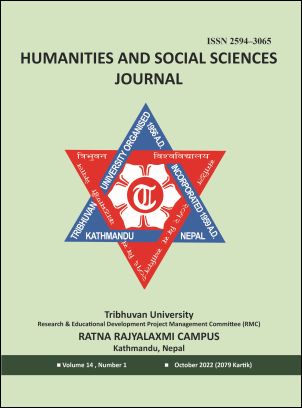Role of Women in Agriculture Related Work Performance in Nepal: A Study of Sunkoshi Rural Municipality of Okhaldhunga
DOI:
https://doi.org/10.3126/hssj.v14i1.58002Keywords:
agricultural production, labour-intensive tasks, labour saving services, source of incomeAbstract
Development of rural areas depends on agricultural industry because it is a main occupation and source of income generation of rural farmers in Nepal. Farming has, however, only given a very small portion of a farmer's income, thus they have added other sources of income. Moreover, half of all economically active people, according to a field survey, work in agriculture. In comparison to the male population, more women work in agriculture. Numerous factors, including family structure, the caste system, educational attainment, farmer age, crop variety, technological level, etc., have an impact on rural women's roles in agricultural production. Women are mostly involved and performed the majority of the labor-intensive tasks including irrigation, harvesting, planting, cultivation of cereal crops and the care of animals. They also have a significant part in the purchase of seeds, fertilizer, and other necessary tools. Rural women also work in a variety of livestock-related tasks, such as grazing, milking cows and buffalo, cleaning sheds, etc. Additionally, they must care for their children and handle household duties with little to no support. So, some recommendations are offered in light of the research's findings, such as raising the overall literacy rate, promoting new idea and technologies like labour-saving devices, and reduction of their drudgeries in household activities are to be introduced in the rural area.




